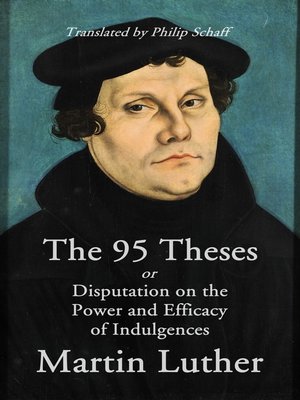
Sign up to save your library
With an OverDrive account, you can save your favorite libraries for at-a-glance information about availability. Find out more about OverDrive accounts.
Find this title in Libby, the library reading app by OverDrive.



Search for a digital library with this title
Title found at these libraries:
| Library Name | Distance |
|---|---|
| Loading... |
After serious deliberation, without consulting any of his colleagues or friends, but following an irresistible impulse, Luther resolved upon a public act of unforeseen consequences. It may be compared to the stroke of the axe with which St. Boniface, seven hundred years before, had cut down the sacred oak, and decided the downfall of German heathenism. He wished to elicit the truth about the burning question of indulgences, which he himself professed not fully to understand at the time, and which yet was closely connected with the peace of conscience and eternal salvation. He chose the orderly and usual way of a learned academic disputation.
Accordingly, on the memorable thirty-first day of October, 1517, which has ever since been celebrated in Protestant Germany as the birthday of the Reformation, at twelve o'clock he affixed (either himself or through another) to the doors of the castle-church at Wittenberg, ninety-five Latin Theses on the subject of indulgences, and invited a public discussion. At the same time he sent notice of the fact to Archbishop Albrecht of Mainz, and to Bishop Hieronymus Scultetus, to whose diocese Wittenberg belonged. He chose the eve of All Saints' Day (Nov. 1), because this was one of the most frequented feasts, and attracted professors, students, and people from all directions to the church, which was filled with precious relics.
No one accepted the challenge, and no discussion took place. The professors and students of Wittenberg were of one mind on the subject. But history itself undertook the disputation and defence. The Theses were copied, translated, printed, and spread as on angels' wings throughout Germany and Europe in a few weeks.







